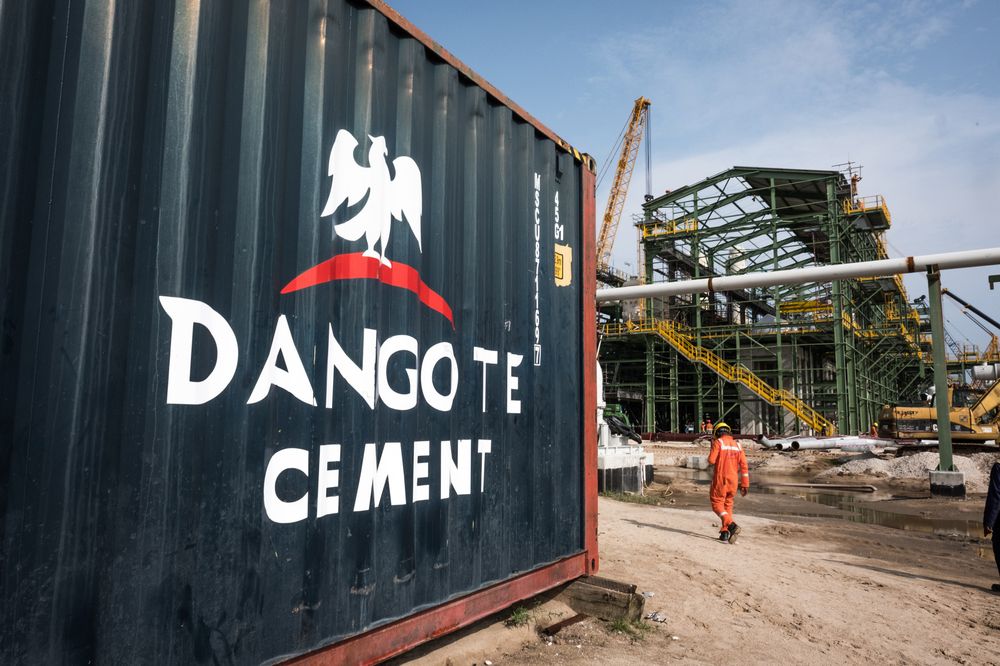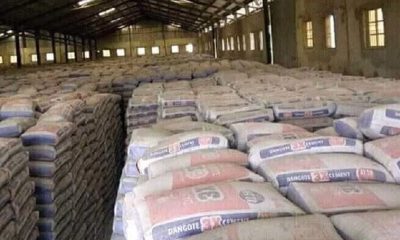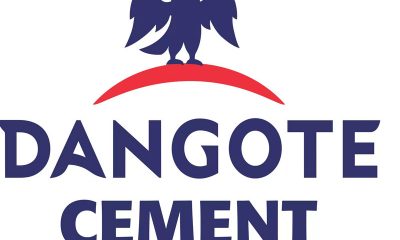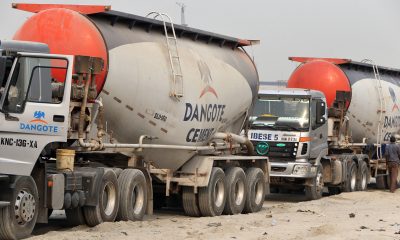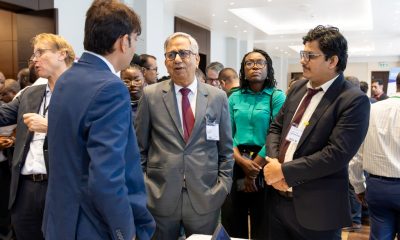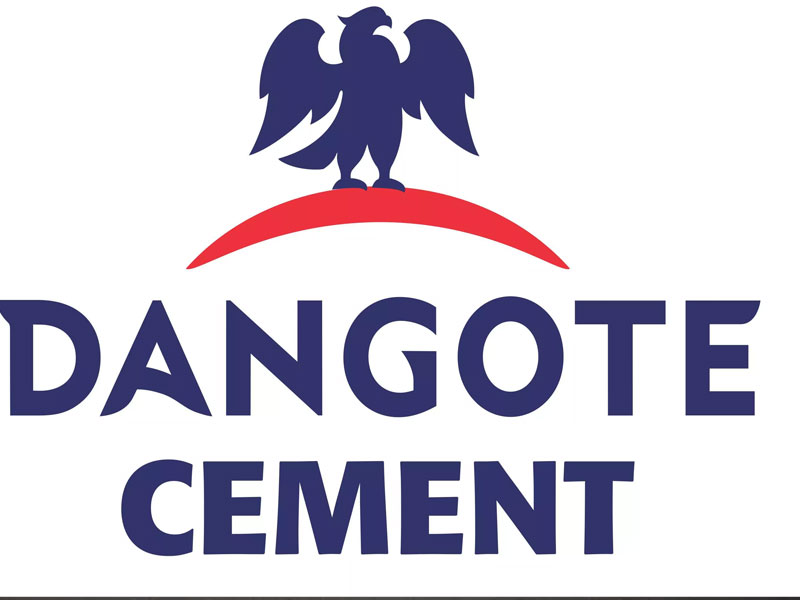General
Dangote Cement Prioritizes Gboko Community’s Developmental Needs
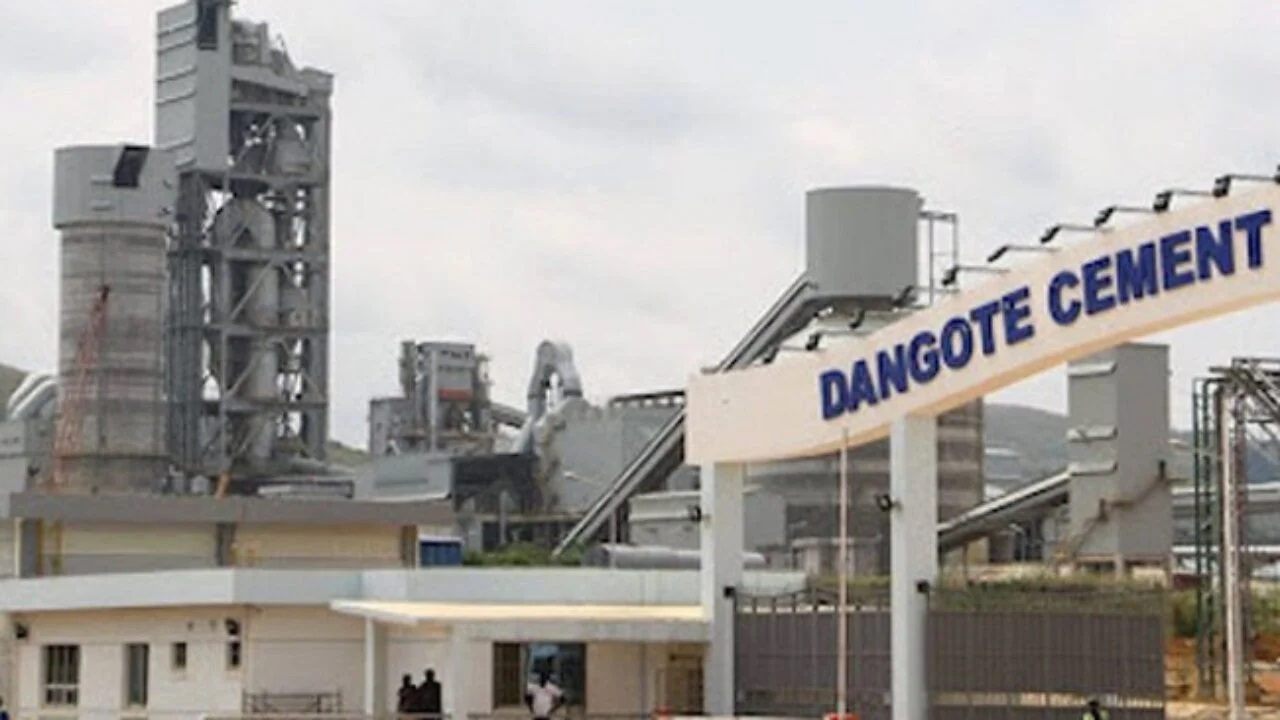
By Modupe Gbadeyanka
Host communities within the Gboko plant of Dangote Cement Plc in Benue State have been assured of the benefits of the company’s social investments.
Addressing a recent report alleging neglect of the communities, the cement miller emphasised that it has always fulfilled its Corporate Social Responsibility (CSR) commitments and has maintained a robust and mutually beneficial relationship with community members.
The Gboko Plant Director, Mr Louis Raj, stressed that the host communities remain critical stakeholders in the company’s business operations and, as such, their developmental needs are given high priority.
He noted that the organisation has been diligently implementing the Memoranda of Understanding (MOUs) with them and has extended its CSR efforts to include sustainable environmental practices, capacity building, and infrastructural development.
“It is on record and verifiable that all government agencies responsible for industrial ecological assessment have periodically visited the Gboko Cement Plant and certified that it operates within approved industrial environmental limits.
“The Federal Ministry of Environment, Benue State Agency of Environment, National Environmental Standards and Regulations Enforcement Agency (NESREA), and other oversight agencies can attest to these claims.
“Whenever an incident of ecological concern arises, the company takes prompt action to ensure proper remediation, and, in some cases, provides appropriate compensation to affected community members,” Mr Raj stated.
He explained that the company has actively contributed to alleviating water crises in several communities, even those beyond its immediate host areas. Over the years, the DCP Gboko plant has installed more than 50 hand-pump and motorised water boreholes across various settlements. Of these projects, 17 have been executed in the Mbayion clan, benefiting the immediate host communities of Amua, Tse-Kucha, and the Quarry Community.
Mr Raj also noted that the company is currently constructing additional motorised water boreholes and is in the process of installing pumps and 30,000-liter capacity steel overhead water tanks for these communities.
“In response to a request from the Tse-Kucha community, the company recently repaired the flow valve at the water earth dam that supplies water for various household uses. Additionally, plans have been finalised for a comprehensive rehabilitation of the earth dam, which was originally constructed and donated to the Tse-Kucha community by the then-Benue Cement Company over 30 years ago.
“While these community water projects are underway and nearing completion, the company is currently addressing water supply challenges by providing water to households in Tse-Kucha using tanker trucks positioned at strategic locations within the community,” he added.
The Gboko plant director emphasised that Dangote Cement is committed to environmental sustainability and addressing climate change.
He highlighted that the company has implemented a robust climate change policy that aligns its operations with global climate goals. As part of the Group’s environmental sustainability programme, the DCP Gboko Plant has initiated a deliberate decarbonization effort, including extensive tree planting across various community settlements.
“We urge all stakeholders of Dangote Cement, Gboko Plant to collaborate with management to ensure ongoing community engagement and dialogue. This will foster a harmonious and peaceful coexistence and create a conducive business environment for the benefit of all.”
General
EFCC Re-Arraigns ex-AGF Malami, Wife, Son Over Alleged Money Laundering
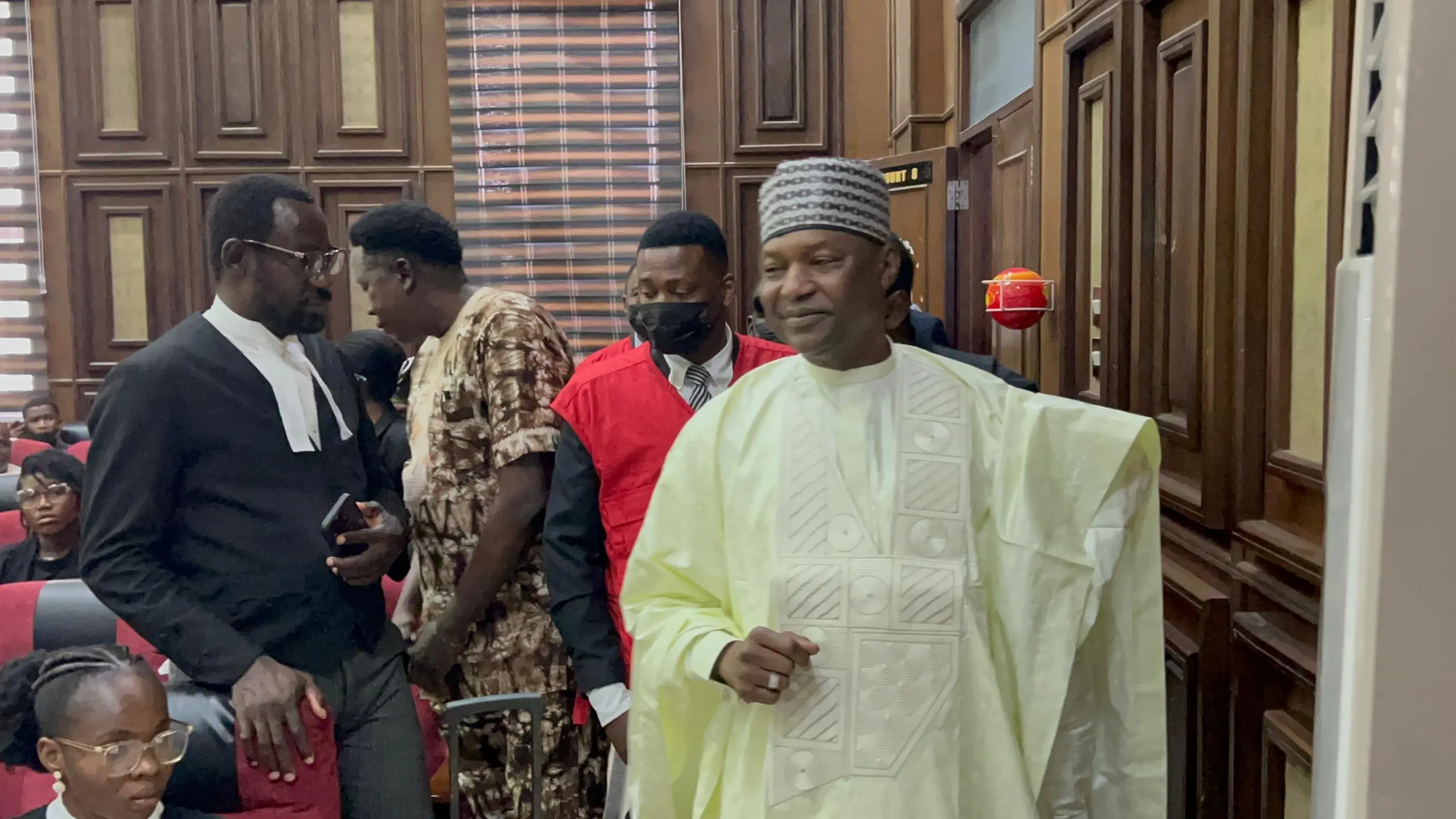
By Adedapo Adesanya
The Economic and Financial Crimes Commission (EFCC) has re-arraigned former Attorney-General of the Federation (AGF), Mr Abubakar Malami (SAN), his wife, Mrs Asabe Bashir, and son, Mr Abdulaziz Malami, on money laundering charges.
They were brought before Justice Joyce Abdulmalik of the Federal High Court in Abuja, following the re-assignment of the case to the new trial judge.
Upon resumed hearing, EFCC’s lawyer, Mr Jibrin Okutepa (SAN), informed the court that the matter was scheduled for defendants’ re-arraignment.
“The matter is coming before your lordship this morning for the very first time. I will be applying for the plea of the defendants to be taken,” he said.
Mr Okutepa equally applied that the sums listed in Counts 11 and 12 be corrected to read N325 million instead of N325 billion for Count 11, and N120 million instead of N120 billion for Count 12.
When it was not opposed by the defence lawyer, Mr Joseph Daudu (SAN), Justice Abdulmalik granted the oral application by Mr Okutepa.
The defendants, however, pleaded not guilty to the 16 counts preferred against them by the anti-graft agency bordering on money laundering.
Justice Obiora Egwuatu had, on February 12, withdrawn from the case shortly after the civil case filed by the EFCC was brought to him.
The case was formerly before Justice Emeka Nwite, who sat as a vacation judge during the Christmas/New Year break.
After the vacation period, the CJ reassigned the cases to Justice Egwuatu, who had now recused himself, before it was reassigned to Justice Abdulmalik.
The former AGF, his wife, and son were earlier arraigned before Justice Nwite on December 30, 2025.
While Malami and his son were remanded at Kuje Correctional Centre, Asabe was remanded at Suleja Correctional Centre before they were admitted to N500 million bail each, on January 7, with two sureties each in the like sum.
General
INEC Shifts 2027 Presidential, N’Assembly Elections to January 16

By Adedapo Adesanya
Nigeria will hold next year’s presidential and National Assembly elections a month earlier than planned, after the Independent National Electoral Commission (INEC) revised the polling schedule.
The elections will be held on January 16, instead of the previously announced date of February 20, INEC said in an X post, signed by Mr Mohammed Kudu Haruna, National Commissioner and Chairman, Information and Voter Education Committee.
There were also changes to the Governorship and State Houses of Assembly elections initially fixed for Saturday, March 6 2027, in line with the Electoral Act, 2022, have now been moved to Saturday, February 6, 2027.
The electoral commission said the changes were caused by the enactment of the Electoral Act, 2026 and the repeal of the Electoral Act, 2022, which introduced adjustments to statutory timelines governing pre-election and electoral activities.
“The Commission reviewed and realigned the schedule to ensure compliance with the new legal framework,” it said.
INEC said party primaries (including resolution of disputes) will commence on April 23, 2026 and end on May 30, 2026, after which Presidential and National Assembly campaigns will begin on August 19, 2026, while Governorship and State Houses of Assembly campaigns will begin on September 9, 2026.
It noted that campaigns will end 24 hours before Election Day, and political parties have been advised to strictly adhere to the timelines.
INEC also stated it will enforce compliance with the law.
The electoral body also rescheduled the Osun Governorship election which was earlier scheduled for Saturday, August 8 2026, by a week to Saturday, August 15, 2026.
INEC noted that some activities regarding the Ekiti and Osun governorship elections have already been conducted, and the remaining activities will be implemented in accordance with the Electoral Act, 2026.
Speaking at a news briefing in Abuja two weeks ago, the chairman of INEC, Mr Joash Amupitan, expressed the readiness of the commission to conduct the polls next year.
The timetable issued by the organisation for the polls at the time came when the federal parliament had yet to transmit the amended electoral bill to President Bola Tinubu for assent.
Later that week, the Senate passed the electoral bill, reducing the notice of elections from 360 days to 180 days, while the transmission of results was mandated with a proviso.
General
NIMASA Rallies Stakeholders’ to Develop National Action Plan

By Adedapo Adesanya
The Nigerian Maritime Administration and Safety Agency (NIMASA) has pledged its commitment to provide the regulatory leadership, technical coordination, and stakeholder engagement required to successfully develop and implement a robust National Action Plan on maritime decarbonization in Nigeria.
The Director General of the agency, Mr Dayo Mobereola, made this known during the National Stakeholders’ workshop on the development of a National Maritime Decarbonization Action Plan, further describing the workshop as a critical step in actualising the Federal Government’s blue economy and climate objectives.
Represented by the Executive Director, Operations, Mr Fatai Taiye Adeyemi, the NIMASA DG underscored the significance of the IMO GreenVoyage2050 Project, a technical cooperation initiative /designed to support developing countries in implementing the IMO GHG Strategy.
According to him, the National Action Plan being developed will reflect national realities, leverage existing capacities, address identified gaps, and align with broader economic and environmental priorities of the federal government.
Mr Mobereola stressed that “this transition is not merely about compliance with international obligations, it is about safeguarding our marine environment, protecting public health, strengthening the blue economy, and ensuring that our maritime industry remains competitive and future-ready”, the DG said.
Also speaking at the event was the Technical Manager of the IMO GreenVoyage2050 Project, Ms Astrid Dispert, who highlighted that the overarching objective of the initiative is to advance a coherent and globally aligned regulatory framework to accelerate maritime decarbonization.
She also emphasised that NIMASA plays a pivotal role in driving the project at the national level.
The IMO GreenVoyage2050 Project provides technical expertise and institutional support to assist countries in developing and implementing National Action Plans that promote sustainable shipping practices, encourage investment in clean technologies, and strengthen capacity for long-term emissions reduction.
Through this collaboration, the federal government is advancing deliberate steps towards maritime decarbonization, reinforcing its commitment to global climate goals and ensuring a cleaner, greener, and more sustainable future for the sector.
-

 Feature/OPED6 years ago
Feature/OPED6 years agoDavos was Different this year
-
Travel/Tourism10 years ago
Lagos Seals Western Lodge Hotel In Ikorodu
-

 Showbiz3 years ago
Showbiz3 years agoEstranged Lover Releases Videos of Empress Njamah Bathing
-

 Banking8 years ago
Banking8 years agoSort Codes of GTBank Branches in Nigeria
-

 Economy3 years ago
Economy3 years agoSubsidy Removal: CNG at N130 Per Litre Cheaper Than Petrol—IPMAN
-

 Banking3 years ago
Banking3 years agoSort Codes of UBA Branches in Nigeria
-

 Banking3 years ago
Banking3 years agoFirst Bank Announces Planned Downtime
-

 Sports3 years ago
Sports3 years agoHighest Paid Nigerian Footballer – How Much Do Nigerian Footballers Earn


